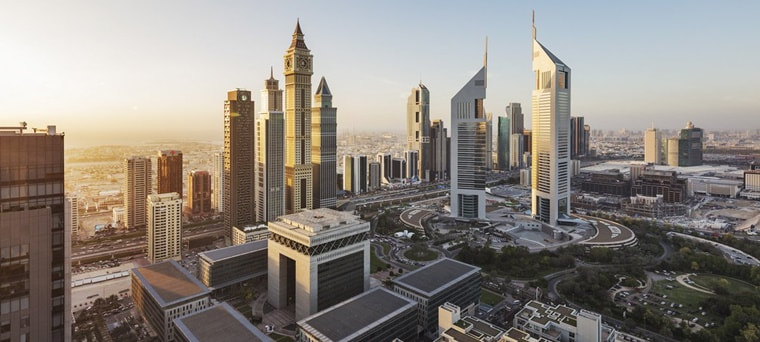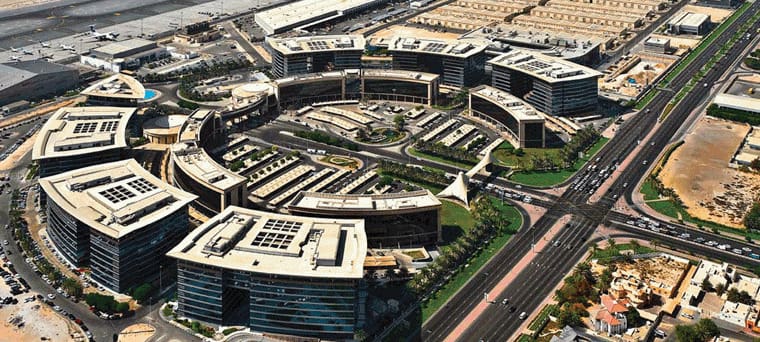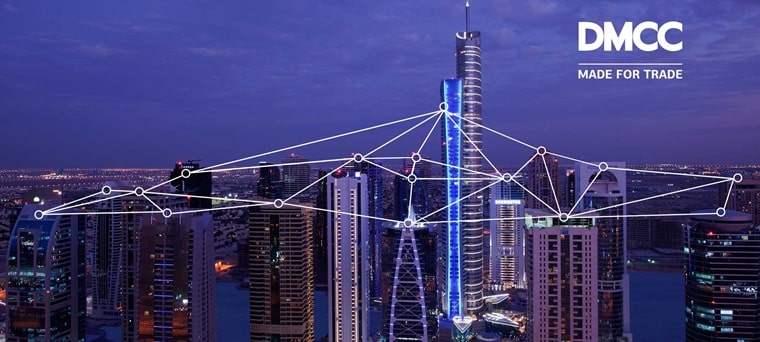

29.07.2025
761
What is it about? Company registration in the UAE opens up promising business opportunities for many reasons, such as entering the international market, reduced tax burden, and attractive investment conditions.
How to register? The algorithm consists of several mandatory steps: from choosing a niche and company type to submitting an application and confirming registration. Today, the most popular solution is to register a company in the UAE free zones.
The United Arab Emirates is a neutral country where business conditions and rules remain unchanged in 2025. Thanks to this stability, the Emirates continue to attract entrepreneurs from around the world, including Russia. If you are planning to relocate your business or launch a startup in the UAE, several key aspects must be considered:
Company registration in the UAE has more advantages than disadvantages.
| Advantages | Disadvantages |
|---|---|
|
No taxes on profit, salary, and capital gains |
Business must be completely transparent |
|
No VAT on goods sold outside the Gulf region and only 5% VAT on certain domestic transactions |
Opening a bank account involves thorough verification. If rejected, you must look for another bank. The account opening process may take several months |
|
In the Emirates, you can register a company with 100% foreign ownership |
The one-window system does not always work efficiently |
|
No reporting requirements |
There is no clear government regulation in the field of intellectual property |
|
Some enterprises are permitted not to maintain accounting records |
Registration of an offshore or onshore company takes two to three months |
|
The local currency exchange rate is stable against the dollar | |
|
No need to rent an office | |
|
Financial and investment security is ensured | |
|
No currency control, which simplifies the transfer of funds to other countries |
Let us examine the main characteristics of companies that can be registered in the Arab Emirates.
| Offshore | Onshore (Free Zone) | Local Enterprise (Mainland) | |
|---|---|---|---|
|
Ownership |
100% |
100% |
51% — local citizen (trading) 100% — local agent, as in offshore (services) |
|
Company Location |
SEZ |
SEZ |
Mainland |
|
Scope of Activity |
Outside the UAE |
B2B — no restrictions B2C (services) — no restrictions B2C (trading) — only outside the UAE territory |
No restrictions |
|
Dependence on agent/local sponsor |
Complete dependence on registration agent |
No |
Dependence on local sponsor/agent |
|
POEM (Place of Effective Management) |
No |
Yes |
Yes |
To correctly select the company type, you should decide where you will conduct your activities: within the country or beyond its borders? In the latter case, the "Mainland" company type can be immediately excluded from consideration. An onshore company in a special economic zone (SEZ) would be the best fit. You can also register an offshore company in the UAE; however, it should be noted that currently such enterprises are becoming less popular and their numbers are declining.
If you plan to conduct business within the country, you have two main options:
Based on the above, the following conclusion can be drawn: when choosing the type of enterprise and its location, registering an onshore company is typically the optimal option.
It is important to note that all activities in the UAE are subject to mandatory licensing, regardless of the enterprise's registration location, whether Mainland or SEZ. The only exception is offshore companies. The licence is usually issued for one year. To renew it, you must regularly confirm compliance with established requirements, such as minimum share capital, level of economic presence in the country, and implementation of the declared type of activity. Thus, administrative duties remain an integral part of doing business in the UAE.
Sharia law operates in the UAE, affecting various aspects of regulation, from inheritance to financing. For example, receiving interest income on loans is prohibited. This influences the choice of intra-group financing mechanisms, forcing companies to use interest-free loans or capital contributions instead of interest-bearing loans. However, loan interest can be included in other contracts between companies.

In 2020, the UAE established a register of beneficiaries, where licensed companies must submit information about their ultimate owners. This requirement does not apply to residents of ADGM and DIFC zones, as well as state-owned enterprises.
Companies operating in sectors important to the country (for example, in the field of intellectual property) must have a real economic presence in the UAE. These regulations apply to all companies, not just those registered in offshore zones. Enterprises must conduct activities aimed at generating income and complying with their issued licence, be managed from the UAE, and have sufficient employees and assets to carry out their activities. Additionally, the organisation must incur appropriate operational expenses. Although requirements in this area are not always clearly formulated, the Emirates government strictly monitors their compliance and may verify the presence of an office, door plate, and employees at the company's registered address.
Let us examine the main stages of company registration in the UAE:
At the initial stage, it is important to choose the sphere of activity for your enterprise. Business, both large and small (currently more than 2,100 types of activities are available for entrepreneurs), covers various areas of industry, commerce, professional services and tourism.
When choosing a name for your company, it is important to comply with the UAE naming rules. The use of profanity in the name is prohibited. Additionally, it is necessary to consider the significance of religion in the UAE, so the organisation's name must not contradict existing moral and cultural traditions. If you want to name the company after a person, you will need to confirm that this person is a partner or owner of your firm.
Foreign citizens need to submit an application for preliminary approval. This will help understand whether the UAE authorities object to your business activities. The application can be submitted online, in person, or through intermediaries, such as a law firm. You will need to prepare several documents:
Reliable business partners play a key role in any business. In the UAE, having competent business associates can be a key success factor in developing your company.
Every company in the UAE must have a physical registration address. For foreign entrepreneurs, placement in a free economic zone is the optimal option. In total, Dubai has more than 38 such zones, some of which are focused on specific industries. Free zones offer many advantages, including full foreign ownership, tax benefits for up to 50 years, and flexible office accommodation conditions.

To launch a business in Dubai, you need to open a bank account. The UAE has an efficient banking system with quality online banking. Choosing the right bank and account type can significantly affect the benefits you will receive in the future. It is important to carefully assess your needs and compare them with available banking products.
Personnel plays a key role in developing your business. The Emirates has a large number of qualified workers, however, there are also many incompetent people here. Effective outsourcing and selecting motivated employees who strive to exceed employer expectations will help your business become better.
You need to prepare a package of documents, particularly addresses of location and legal information about your enterprise, for submission for final approval. In certain cases, you will need to apply for licensing in related jurisdictions.
Special economic zones (SEZs) are created to support and stimulate certain types of entrepreneurial activity. Each of these zones has unique rules and conditions for business. In total, there are between 26 and 52 such zones in the UAE, depending on the specific registry.
Within SEZs, entrepreneurs are offered various benefits. For example, exemption from corporate tax and VAT, making these zones attractive for investment and business development.
Foreign investors can fully control their companies in free zones without involving local sponsors and agents. An additional advantage is the specialisation of many free zones. Some of them focus on specific areas of activity:

This contributes to the development of specific economic sectors and creates conditions for specialised business operations in respective areas.
When launching and managing business in SEZs, all entrepreneurs face the same conditions:
When registering a company in the UAE SEZ, it is important not only to determine the sphere of enterprise activity but also to choose a jurisdiction that will be most beneficial and corresponding to the specifics of the business plan.
Located in Dubai, this jurisdiction specialises in trading a wide range of goods, including coffee, tea, precious metals, precious stones, and other commodities. The special economic zone provides significant opportunities for companies engaged in trade and logistics.

The SEZ is located in the Jumeirah Lakes Towers district, which is known for its high-rise buildings near Dubai Marina. This dynamic area attracts companies that value status, strategic location, and image. Jumeirah Lakes Towers combines commercial and residential buildings with convenient access to public and personal transportation, making it an attractive place for business and living.
DMCC is one of the world's leading special economic zones. More than 19,000 companies from over 100 countries have registered here. An entrepreneur can track the registration process online through the founder's personal account.
JAFZA is one of the largest free zones in Dubai, known for its ancient traditions and grandeur. The main emphasis is on international trade (the zone is located in Jebel Ali, which is one of the largest ports in the UAE). This provides opportunities to import and store goods within the zone without paying customs duties.
JAFZA is the UAE's main centre for importing goods and re-exporting them to Gulf countries, the Middle East, and other regions. The zone offers entrepreneurs advantageous conditions in logistics and manufacturing.
IFZA was established in the Emirate of Fujairah in 2016 to create a favourable business environment in the UAE for diverse industries. This free zone became one of the fastest-growing in the region due to several benefits:
IFZA is conveniently located. This zone is just half an hour's drive from Dubai International Airport and the city centre. Additionally, IFZA features developed infrastructure.
ADGM is located in the centre of Dubai and is a global financial hub, providing necessary legal and financial infrastructure for investment and insurance organisations, and banks.
RAK was founded in the emirate of Ras Al Khaimah. This zone plays a key role as a centre for companies specialising in manufacturing, logistics, and trade, as it offers excellent conditions for stimulating and developing such businesses.
Dubai Design District (D3) is attractive because of its diversity of companies from various creative industries, such as design, art, architecture, fashion, media, and technology, creating a unique environment for collaboration and exchange of creative ideas.
Moreover, D3 actively supports innovation in design and creativity, striving to become a leading centre in this field. The SEZ houses various research centres and laboratories responsible for creating new technologies and concepts.
SHAMS, located in Sharjah, attracts companies in marketing, e-commerce, media services, information technology, and online services. The zone offers affordable conditions for small enterprises starting their journey in the UAE market, providing optimal value for money.
RAKEZ is one of the fastest-growing free zones in the UAE, with more than 18,000 registered enterprises. It offers advantageous conditions aimed at increasing business efficiency and reducing expenses. For example, companies registered in RAKEZ are exempt from corporate tax for up to 15 years.
Free zones in the Emirates cover various sectors of the economy, offering a wide choice of opportunities for establishing a company in this country. This indicates that every business can find a suitable jurisdiction that will provide maximum advantages through various benefits and support programmes.
Banks in the UAE continue to actively open both resident and non-resident bank accounts. In the second case, information about the client's tax residency and tax number is required. When opening a resident account, a UAE tax resident visa is needed, as well as an identity card (ID card) and a local address in the UAE.
Additionally, banks may request a document confirming the need to open an account in the UAE. In other words, you need to prove that you want to work in the Gulf region, plan to relocate to the UAE while maintaining business outside the country, etc.
It is best to obtain a UAE tax resident visa when opening a company. This will allow deeper integration into the local economy. It should be noted that only tax resident visas are provided in the UAE. Currently, there are no programmes similar to those offered in some other countries (for example, there is no possibility of obtaining a passport through investment).
This cannot be determined precisely. When it comes to industries, everything depends on the specific situation. For example, construction materials are in demand, but logistics makes transportation expensive. Cosmetics are overly represented in the market, but this doesn't mean that it's categorically impossible to enter the niche.
Many Russians live in the UAE and there is a demand for familiar products. Because of this, Russian goods such as: flour, vegetable oils, vegetables, nuts, meat, fish and dairy products are in high demand.
Besides products, there is demand for various services, for example, quality cosmetology procedures. Specialists are often recruited from Russia or Ukraine. Flower production and bouquet arrangement are also developing successfully. The region is developing, making events, holidays and immersive shows popular.

The main focus should be on market analysis, finding partners and identifying the target audience.
Business relocation to Dubai includes several stages:
Before starting work in the Emirates, it is important to know the current rates for opening a business. The final cost of company registration in the UAE depends on the chosen licence. For example, registering a business with a trading licence will require about 25,000 dollars. This amount includes various expenses:
It is also possible to purchase an existing business in Dubai. However, it is necessary to consider rental expenses, which depend on the size and specifics of the business.
The UAE has quite a low tax burden, however, some obligations are still present. Let's look at the main tax rates:
It's important to note that if a company's annual profit does not exceed $100,000, it is exempt from corporate tax. All enterprises, including those registered in free zones, must fulfill their tax obligations. However, VAT and corporate tax rates may be set at 0% for companies registered in free zones.
The UAE has strict tax reporting, including several key elements. First and foremost, this includes an annual audit of financial statements, mandatory for all enterprises registered in the country.
Since 2019, Economic Substance Regulations (ESR) have been introduced, which apply to organisations engaged in certain activities, including banking and insurance, financial and leasing, headquarters and holding activities, intellectual property, shipping companies, service centres and distributors.

Non-compliance with ESR requirements can lead to fines of up to 50,000 dirhams (approximately 1.3 million rubles). If you continue to violate the laws, you will lose your licence. Companies are also required to submit VAT and corporate tax reports. It should be